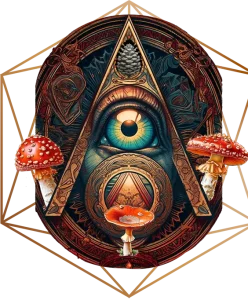In recent years, the practice of microdosing psychedelics has ignited discussions about its potential to alleviate depressive symptoms. Advocates of microdosing suggest that consuming sub-perceptual doses of psychedelic substances, such as LSD or mushrooms, may hold promise in addressing depression. However, the question of whether microdosing can cure depression remains a complex and nuanced one, requiring a comprehensive examination of scientific research, anecdotal evidence, and ethical considerations.
Microdosing and Depression: Seeking Relief from the Shadows
Depression, a widespread mental health condition, impacts millions of individuals worldwide. Those who experience depression often seek various treatment options to alleviate their symptoms and improve their overall well-being. The potential for microdosing to offer relief from depressive symptoms has intrigued both researchers and individuals struggling with this condition.
Anecdotal reports from individuals who have engaged in microdosing suggest a range of positive outcomes. Some report experiencing improved mood, increased emotional resilience, and a renewed sense of connection to life. These subjective accounts have sparked curiosity about the potential therapeutic benefits of microdosing, particularly for individuals who have not responded well to traditional treatments.
The Intersection of Science and Experience
While anecdotal reports provide insight into potential benefits, it’s essential to consider scientific research to understand the potential of microdosing in treating depression. Preliminary studies have shown promising results, with some participants reporting reductions in depressive symptoms after engaging in microdosing protocols. However, these studies are limited in scope and often lack rigorous experimental designs, making it challenging to draw definitive conclusions.
The potential mechanisms through which microdosing might influence depression are multifaceted. Some researchers hypothesize that the interaction between psychedelic substances and serotonin receptors in the brain could play a role in mood regulation. Others suggest that the altered states of consciousness induced by microdosing may lead to shifts in perspective and increased emotional resilience.
Clinical Trials and Therapeutic Potential
The exploration of microdosing’s therapeutic potential involves clinical trials that examine its effects on depression. Researchers from institutions such as Johns Hopkins University have embarked on studies that delve into the interaction between microdosing and brain activity. These studies aim to unravel the effects of single doses of psilocybin, the active ingredient in psychedelic mushrooms, on treatment-resistant depression and severe depressive disorder.
Previous studies involving larger doses of psilocybin have shown promising results in treating depression and other affective disorders. Psilocybin-assisted therapy, conducted in a controlled environment with the guidance of medical professionals, has shown therapeutic effects on emotional empathy, cognitive functioning, and improvements in mood. While these findings are compelling, the translation of such effects to microdosing remains an ongoing subject of investigation.
Balancing Therapeutic Benefits and Risks
As the discourse around microdosing for depression continues, it’s essential to consider potential risks alongside therapeutic benefits. The potential for abuse, adverse events, and the lack of standardized dosing are factors that demand careful consideration. Adverse effects such as changes in blood pressure, altered cognitive performance, and even hallucinogenic experiences have been reported in some microdosing studies.
Researchers are also exploring the impact of microdosing on cognitive functions and symptoms of anxiety. The potential interactions with serotonergic psychedelics, such as lysergic acid diethylamide (LSD), further complicate the picture. As the therapeutic process of microdosing unfolds, it’s crucial to conduct follow-up studies with large sample sizes to provide comprehensive insights into its effects.
The Road Ahead: Toward a Comprehensive Understanding
In conclusion, the question of whether microdosing can cure depression encompasses a myriad of factors, from individual experiences to scientific research and ethical considerations. While there is growing interest in the potential therapeutic effects of microdosing, it’s vital to approach this topic with a balanced and evidence-based perspective. The intricate interplay between the effects of microdosing, brain activity, and symptoms of depression necessitates rigorous research, interdisciplinary collaboration, and ongoing dialogue.
The journey toward understanding the potential of microdosing in treating depression is marked by complexities and uncertainties. As researchers, mental health professionals, and individuals seeking relief continue to explore this terrain, the broader implications of microdosing for mental health, cognitive functioning, and emotional well-being remain subjects of discovery and inquiry.
Disclaimer: This article provides an exploration of the potential relationship between microdosing and depression. It does not endorse or encourage the use of illegal substances. Individuals seeking treatment for depression should consult medical professionals and explore evidence-based treatments.


